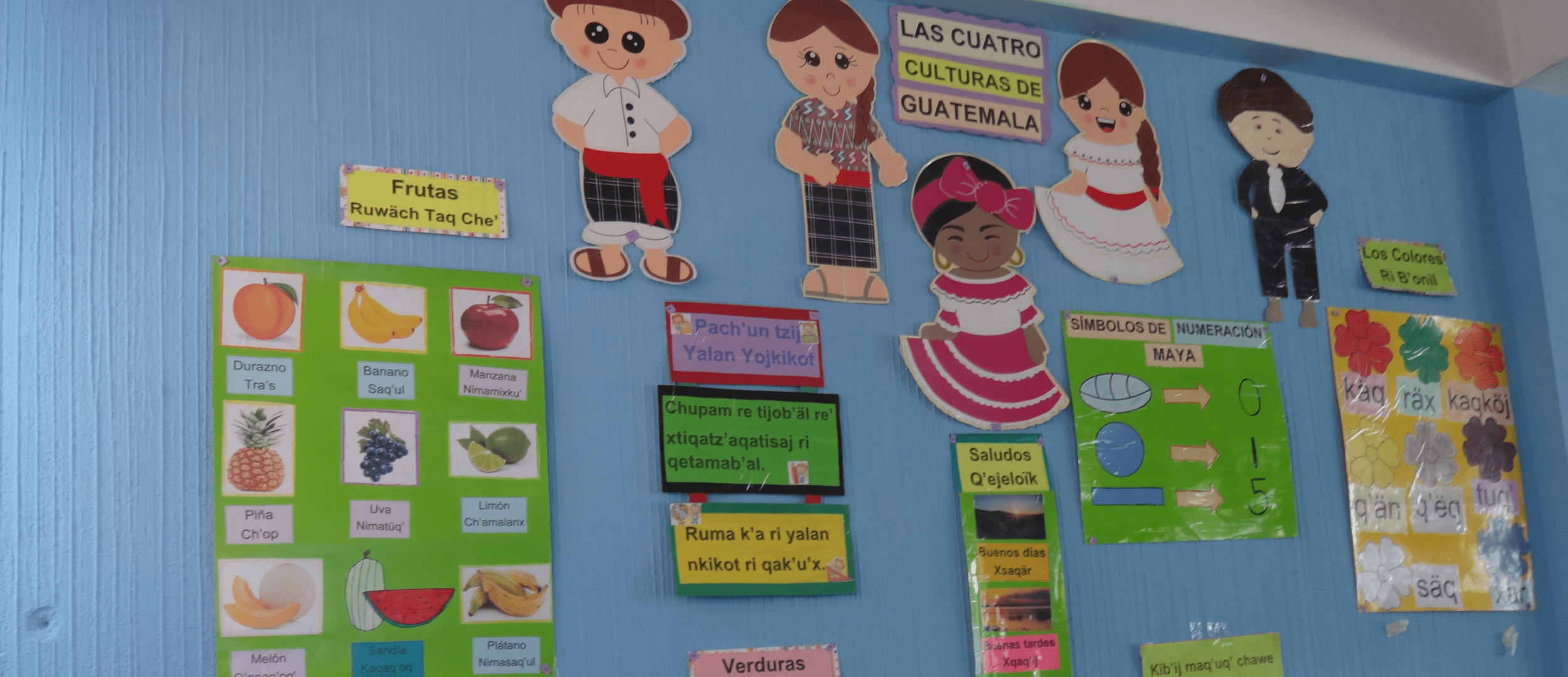
In a country where discrimination against the Mayan population persists and where the school system often neglects indigenous languages and cultures, we are launching a new university training program for teachers and staff of the Ministry of Education. This training aims to improve the reading and writing skills of young students from their first school year through bilingual education in both Mayan and Spanish.
Maria Balaguer, Regional Coordinator for Enfants du Monde in Guatemala
Learning to read and write is not just about deciphering or encoding letters or combinations of letters, but rather about understanding and making sense of what is read or produced.
Our undergraduate training develops skills in understanding and producing texts, complementing the traditional focus on grammar and letter sounds. By combining these two approaches, we prepare students for a comprehensive command of the language.
Meeting the needs of children and teachers
An in-depth analysis (surveys and focus groups with experienced teachers, classroom observations, study of Covid-related learning losses in particular) allowed us to identify current teaching practices in first-year classes as well as the needs of both teachers and pupils.
Structured into four distinct modules, the course guides participants from understanding their sociolinguistic environment to learning appropriate and culturally relevant teaching methods. In particular, participants will be able to design educational activities in both Spanish and Mayan that address the difficulties encountered by pupils learning to read and write.
A university-accredited degree program
This diploma course is offered in conjunction with the University of San Carlos of Guatemala (USAC) through the Secondary Teacher Training School (EFPEM).
It is aimed at Mayan language speakers (basic level) who are either first-year teachers in schools within our Bilingual and Intercultural Education program or employed by specific divisions of the Ministry of Education (General Directorate of Intercultural and Bilingual Education; Departmental Directorates of Alta Verapaz and Chimaltenango; National School Support System).
The themes have been developed in collaboration with EFPEM, our Education team, and bilingual and intercultural education professionals from our local partner CIPREVICA, ensuring expertise and a tailored pedagogical approach.
This course complements our previous courses on Diagnosis and Educational Contextualisation (2021) and Didactics of Multilingualism(2022).

My donation makes a difference :
I offer a bilingual textbook in Spanish and Mayan to 53 students in Guatemala.
I fund 7 educational radio shows for students who can no longer go to school in Guatemala.
I finance continuing education in bilingual education to 10 teachers in Guatemala to improve the quality of their lessons.


